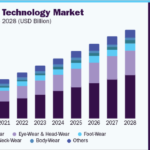Mobile App Development for IOS and Android
Mobile app development is one of the most rapidly growing technologies of today’s modern world. As the use of mobile devices continues to increase, more businesses, organizations, and individuals are turning to mobile app development for their projects.
Mobile app development involves creating software applications for use on mobile devices, such as smartphones and tablets. It is an incredibly rewarding endeavor, as the final product of an app development project can range from simply entertaining a user, to making life-saving changes for a global community.
An android app development company in Noida can help you with the best mobile app. In this blog, we are going to discuss the benefits and development process of mobile app development.

Why there is a need to develop an app for iOS and android?
The need to develop an app for iOS and Android is driven by the immense popularity of these platforms. With an estimated 3.2 billion mobile users across the world, the mobile app industry has seen exponential growth. This makes it a highly attractive target for businesses and entrepreneurs, who are keen to leverage this potential audience. The key reasons why there is a need to develop an app for iOS and android are-
- To provide a user-friendly and streamlined experience to customers.
- To give customers easy access to services, information and features.
- To allow customers to take advantage of the features available in mobile phones, such as GPS, NFC and other features.
- To enable businesses to easily reach their target audience and gain a larger market share.
- To capitalize on the growing popularity of smartphones and tablets.
- To enable companies to increase their visibility in the App Store and the Google Play store.
- To enable businesses to leverage mobile marketing and advertising opportunities.
- To make apps easily discoverable by leveraging different channels, such as social media, online advertisements, and others.
- To take advantage of cloud services for back-end development, such as user management and analytics.
Key benefits of app development
- Reach a Wider Audience: The ubiquity of mobile phones means that there is no barrier to users accessing your app regardless of location or time. Apps make it easier for your customers to access your services, regardless of whether they are in the same country as your business.
- Increased Sales: The ability to showcase your product or services in an attractive, intuitive format increases the chances of increased sales as users can purchase items with ease.
- Enhanced Customer Engagement: Apps provide a great opportunity to stay in contact with your customers, providing useful updates and notifications as well as special offers and discounts.
- Increased Brand Visibility: Having a great app with features like user feedback and high-quality visuals can help your business to stand out from competitors and boost your overall brand recognition.
- Cost-Effective Marketing: As users have a direct line to your app, it’s an efficient way of delivering regular content and promoting your services.
- Boost Customer Loyalty: Using features such as rewards and loyalty programs helps to engage your customers and encourage repeat purchases.
- Streamlined Business Processes: By utilizing features such as appointment booking or payment processing, apps can streamline and automate everyday business processes.
Ios and Android app development process
- Research and Discovery: Before starting any development project, research and discovery are essential. This includes understanding the user needs, researching competitors’ apps, outlining objectives and analyzing market trends. This helps determine which platforms should be used for the development project.
- Ideation: After conducting research and discovery, it’s important to create ideas for how to bring the desired app to life. During this phase, mock-ups and wireframes are often created to visualize how the app will look and feel.
- Planning: The planning phase includes more details about how the app should work, such as data structures, algorithms and specific requirements for each device. A project plan should also be created, detailing tasks and timeline expectations.
- Design and Development: Once a plan is in place, the development and design of the app can begin. The process can be split into front-end development and back-end development. During this time, it’s also important to consider usability and user experience.
- Quality Assurance: Quality assurance (QA) testing is essential to making sure the app functions properly. This phase includes testing the app across all devices and checking for bugs.
- Launch: After all of the testings is done and the app is functioning correctly, it’s time to launch! This means submitting the app to the Apple App Store and/or Google Play Store and making it available for users.
- Support and Maintenance: Even after the app is launched, there are still tasks to be done. App updates should be released regularly, user feedback should be monitored, and customer support should be available if needed. This helps maintain the quality of the app and addresses any issues that come up.
Conclusion
Overall, android and iOS app development companies can help businesses and individuals create engaging, valuable apps for a wide variety of purposes. However, this process requires skill and experience. In order to get the most out of the app, organizations must partner with experienced app developers. By doing this, they can ensure that the app meets their needs, increases engagement, and generates revenue.
Author Profile

-
Hi I am Karan a passionate blogger. It's almost 4.5 years when I started blog writing in 2019. I am the owner of the Dailylist.in. My dedication to delivering reliable information and useful tips has earned him a loyal following among tech enthusiasts seeking reliable insights and recommendations.
If You have any query then email Us. dailylist88@gmail.com



